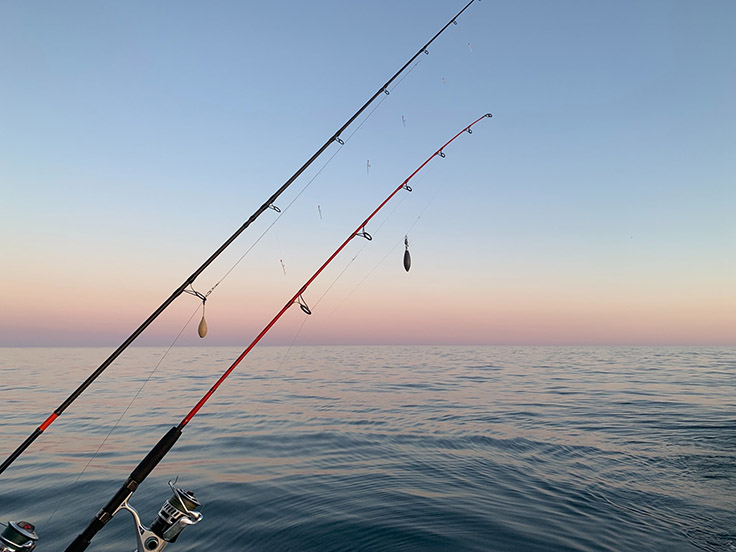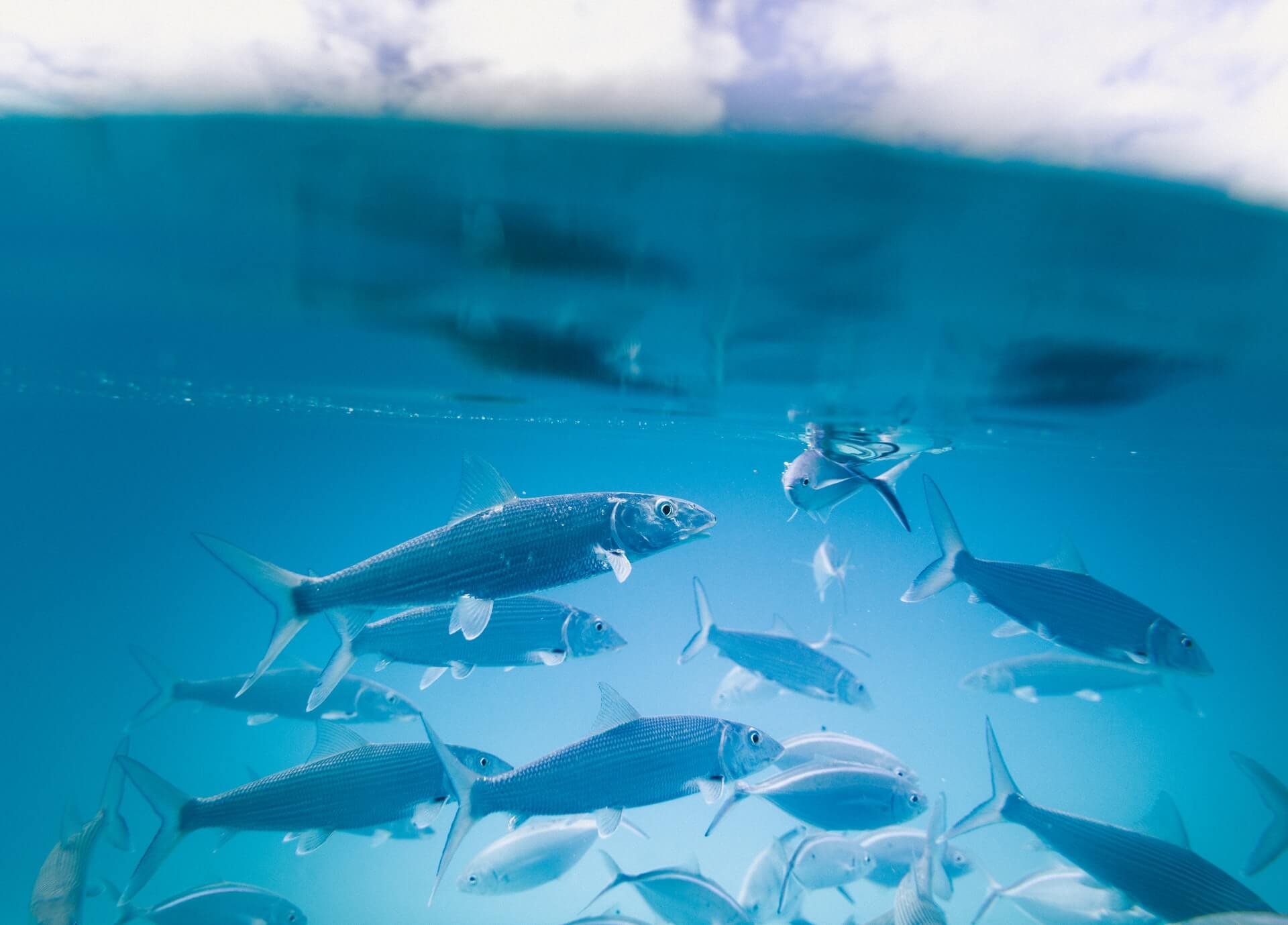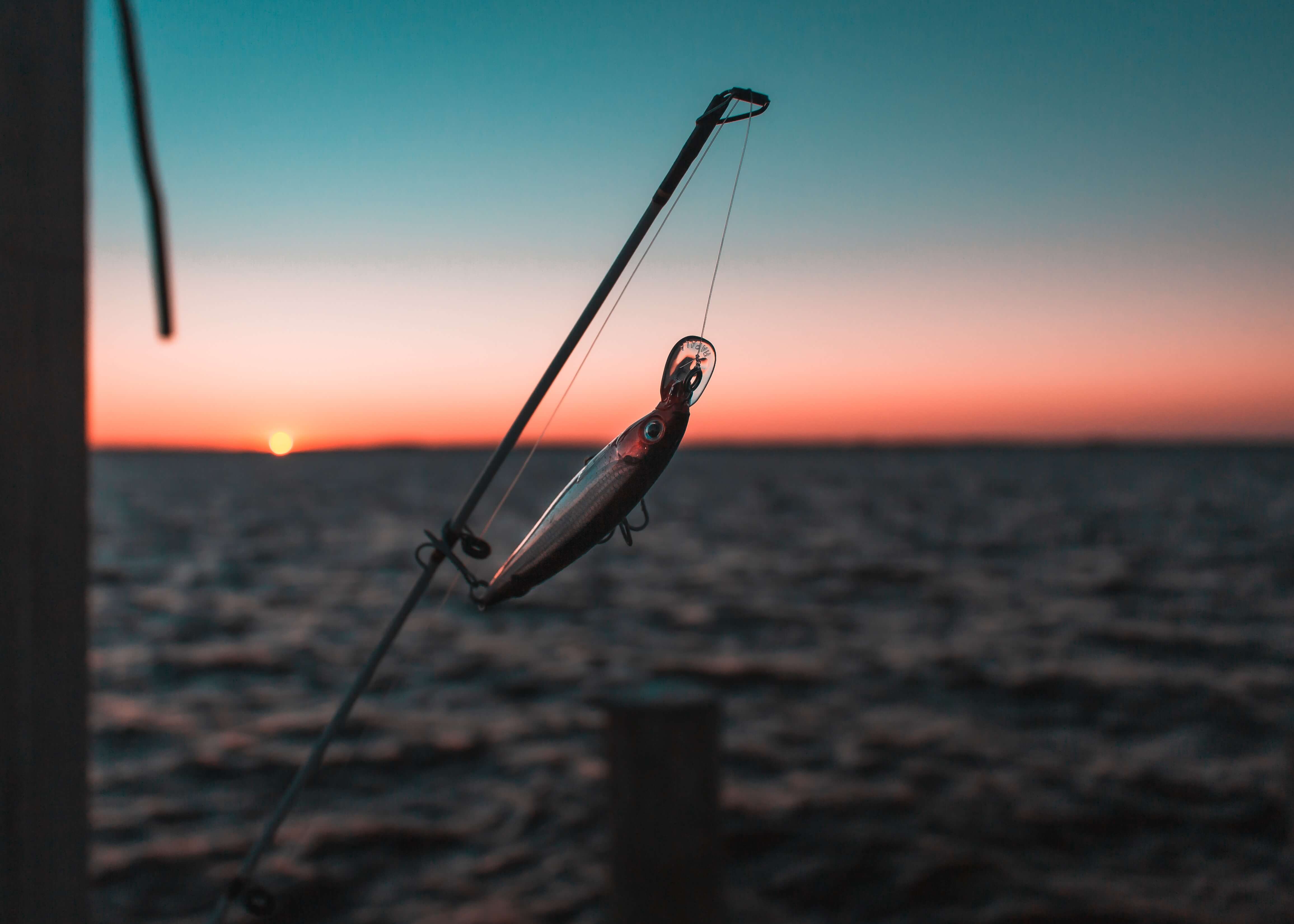
Sea angling is an activity that requires a little knowledge of the regulations. This will ensure that you always stay within the law and meet the requirements imposed by this rich and varied environment.
There are a number of general aspects to sea angling that might weight you to think that there are rules about when you can and cannot fish. Whether you fish with a float, lures or bait, this will be true. We're thinking of the reproduction period of fish, night-time hours or reserved sectors that can have an impact.
We'll see that you need to pay close attention to the waters you're fishing in order to comply with the year-round fishing authorisations and use your equipment at the right time, without the risk of having your reel, rod, line, weight and lures confiscated.
The fish reproduction period

This is one of the most important factors in the survival of a species of fish. It is essential for every angler to take into account the need to respect reproduction. It ensures that you get regular catches of fish over time, whether using lures, floats or surf casting baits, as well as corks or wedges with different rigs.
After years of inaction on the part of many players, thinking that the resource was inexhaustible, this aspect of angling has finally become an integral part of the approach taken by fishermen and biologists. Our article"How to fish at sea" will give you all the tips you need to fish correctly and with respect for nature. Lure fishing and the ease with which fish can be caught have also contributed to this trend, offering new and more entertaining equipment.
Fishing from the shore is not something you can do at any time. Or, to be more precise, you won't be allowed to take fish during certain periods, or with catch limits. This is even truer when fishing with bait, relying on the movement of fish in your sector.
This has been the case for sea bass in the Atlantic for several years now. Beginners may well wonder what licence they need to fish at sea The 48th parallel forms the border between the southern and northern zones, which do not have the same regulations. The catch limit will be two per day in both cases. But this will apply all year round in the south, whereas in the north there will be a graciation period for this species from 1 December to the last day of February.
Daylight saving time

As freshwater anglers are well aware, there can be different fishing times. Whether for organisational, control or traffic reasons at night, there are generally rules governing this, at least for recreational fishing.
For saltwater fishing, there are no set times. You can fish for pleasure for the full 24 hours of the day, without running the risk of breaking the law. This allows you to fish at night, for example with surfcasting, which is often much more effective, or with the Egi technique for searching for cephalopods.
When fishing from the shore, it should be noted that some times are better than others. If the sea is ever too rough, don't forget to adapt your tackle - our article"What type of fishing rod for rough seas" covers the subject in depth. The hour around the swing of the tide is often an ideal time for both bait and lure fishing, as the fish leave the bottom more regularly to feed. This is particularly true from shore rather than from a boat, where you can follow the fish and adapt your technique.
If you are fishing with gear, we advise you to find out about local regulations. These may impose times for catching fish and breaks to ensure that all uses of the water can coexist, whether on the Atlantic or the Mediterranean. Make sure you know the size of each species, to avoid getting into trouble.
Reserves and protected areas
We talked a little about this in the first paragraph. Certain sectors of our territorial waters are totally dedicated to the reproduction and life of certain species of fish. This is linked to the growing awareness of the need for biological rest and resource management. Bottom trawling by professionals, for example, is banned, as is boat traffic in some cases.
Many species may be affected. We've talked about sea bass, but crustaceans are also often affected, with restrictions on fishing techniques and the number and weight of catches.
So it's important to take a map with you and mark the sensitive areas. This will ensure the future of recreational lure fishing for generations of anglers to come.
New developments are likely to feature in future legislation. Weight pollution and the sometimes exotic nature of certain baits should be on the agenda of future rules to be complied with. The live-fishing assembly should also see some changes in the future.
You may also like :
